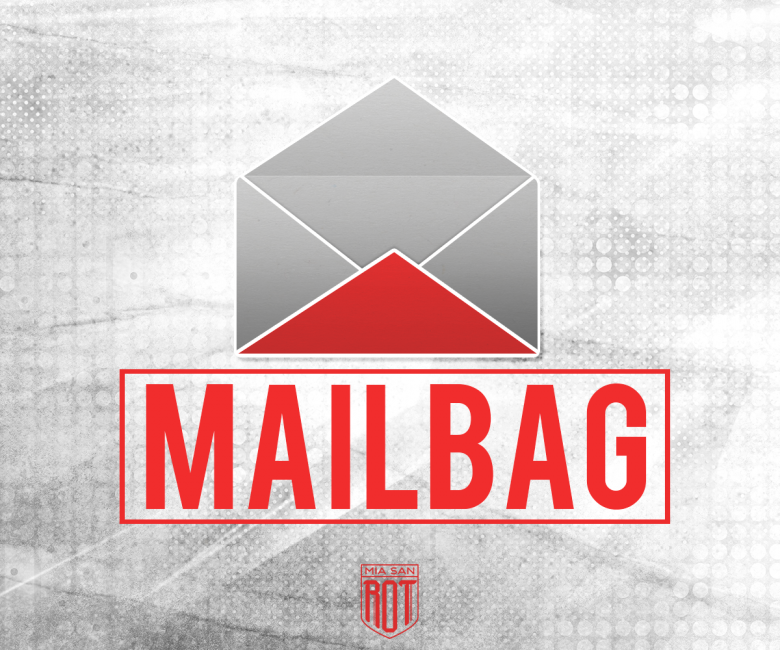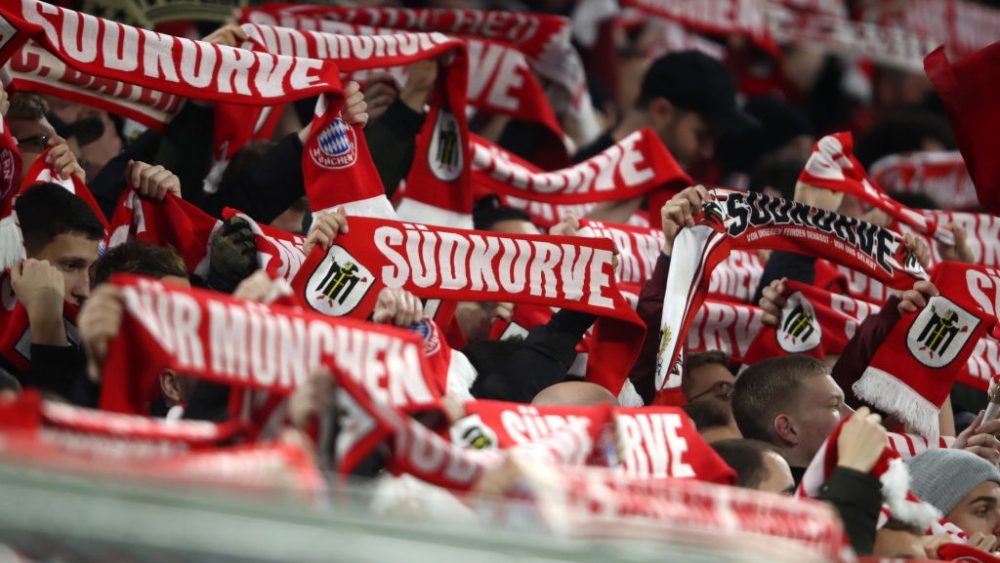Mailbag Special: Governance of clubs
Don’t know whether or not I’m too late with this one, but I’m sincerely interested in understanding the governance of traditional clubs as opposed to privately owned teams. What real influence to club members have? What are the rights, benefits & responsibilities of a member?
— M Oehlschlager (@mOehlschlager) 30. November 2018
To answer this particular question we called upon Christian, who is not only an excellent interviewer, but also an expert on everything that’s happening off the pitch. In 2016, he spoke at Bayern’s general assembly and pointed out several mismanagements in the club.

What I’m interested in is the running of a club in private ownership in comparison with a traditional club.
A club in private ownership is no longer a club in the sense that we know it in football. In a “traditional club” the members define what happens. They choose a president or an executive committee that leads the club in the interests of the members. In a private company, the majority owners take precedence. They appoint a board that makes the business decisions.
With FC Bayern as an example it becomes clear what difference there is between an “e.V.” [a registered (voluntary) association] and a privately organised company. And what kind of connection there is between the two forms, specifically in FCB’s senior football.
What influence do members actually have?
According to the applicable clauses in the law of associations, all members of an association start out with the same rights and obligations.
Directly from the law, however, only the rights to co-administration come about – that is, a seat and a vote at general assemblies as well as protection rights like the rights of minorities. The rights to co-administration guarantee your association’s members above all the capacity to take part “actively” in the life of the association and thus to be able to play a part in defining the fate of the association. This includes: The right to take part, speak, access information, petition, vote and elect in the general assembly.
What are the rights, obligations, tasks and advantages of a member in comparison to the average fan?
In a nutshell: only the member theoretically has rights, obligations, tasks and advantages. The fan only has (by obtaining a ticket) the right to visit the stadium. And the obligation to follow procedures in the stadium.
There are, however, football clubs with significantly less rights for members than is the case at FC Bayern. At Rasenballsport Leipzig, for example, there are currently only 17 members with the right to vote, almost all coming from the area of the Red Bull company. At that club, you can only become a supporting member by application. Without any rights to be involved in the decision-making process.
An association member of the FC Bayern Munich e.V. is on paper a co-owner of the FC Bayern Munich AG [PLC], that is, the corporation to which among others the professional team belongs. This is because at FC Bayern the e.V. holds the majority of the shares and through the president occupies the chair of the board of directors of the AG. In this function the e.V. can (through the president) among other things appoint or deselect a board of directors.
As a member, then, you can be involved in the decision-making process, you can take part in the annual general meeting (AGM), vote for an executive committee, honorary advisory board and accountancy firm, bring forward motions, and even speak at the annual general meeting.
The member’s rights bring with them the advantages as well. Fundamentally that is participation in decision making.
When it comes to buying tickets, as a member you enjoy the right of being able to order/buy tickets early. With the high demand for tickets in the last ten years, that has often been the only way of getting tickets directly.
From the currently applicable statute of the FC Bayern Munich e.V. (2014)
§ 8 Rights of members
All members have the right to take part in the life of the association within the framework of the statutes and the departmental regulations, and the right to use the facilities of the association. Only full-year members have the right to take part in and vote in the general assembly.
§ 9 Obligations of members
In his/her behaviour towards the club and its members, each member must put the honour and reputation of the club above all else. Members must comply with the orders of the executive committee and the implementing bodies and commissions in all association affairs, and with the orders of the departmental leaders in the relevant sporting affairs.
§ 12 Orderly general meeting (annual general meeting)
The general meeting is the over-arching determining organ of the club. The general meeting is responsible for the election of the executive committee, the election of the honorary advisory committee, and an accountancy firm for the end of year accounts. It receives reports from the executive committee and decides on discharging the afore-mentioned.
A rather important point that was decided at a previous AGM is the fact that the e.V. may not sell off more shares to private investors quite so simply. Not even within the buffers between the current 75% and the permitted 51% [all e.V.s in Germany must be owned at least 51% by its members]. This is what it says in the statute:
For an agreement to an increase in capital in the FC Bayern Munich AG and for other decisions through which a shareholder of the FC Bayern Munich AG alone or together with a company of the same corporate group obtains an involvement of more than 20% of the capital or voting rights of more than 20%, or through which the shares or voting rights of the FC Bayern Munich e.V. fall below the limit of 70%, the representatives of the FC Bayern Munich e.V. at the general meeting of the FC Bayern Munich AG require the agreement of the majority of the executive committee membership and a three-quarter majority of the general assembly.
As a member of the FC Bayern Munich e.V. one can also bring forward motions. The statute describes the procedure:
Motions must be submitted in writing to the executive committee at least 30 days before the next general meeting and be sufficiently justified. Motions to change the statute must be reported to members in the proposed wording. Motions to change the statute require a three-quarter majority of members present.
Once more on the current majority relations: The FC Bayern Munich e.V. is majority owner of the FC Bayern Munich AG. The mother association currently holds 75% of shares. The rest of the shares (each 8.33%) are with FCB’s long-time partners adidas AG, AUDI AG and Allianz SE. The cumulative shares of the three outside investors make up for 25% of the FC Bayern AG and thus lie below the vetoing minority, through which FC Bayern has ensured against an overly high influence level for investors.
We want to note, that we cannot guarantee that the legal background to the details is this article is complete or accurate in all of the points. For further inquires we refer to the club statues.










1 Comment